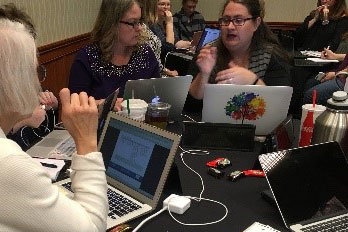As the education community heads back to school following a disruptive year-and-a-half, the importance of using formative assessment data to uncover and address learning gaps cannot be overstated. This is true for every age group, but it’s perhaps most vital in preschool and the early grades because young students’ learning and development was interrupted at a critical stage.
Understanding where children are in terms of their learning and development is important to planning out an instructional path toward meeting learning goals and standards.
Data use plays a major role in making this happen.
In essence, “data culture” is really “decision culture.” Well-formed decisions are based on quality data. Research has shown that data use helps early childhood education (ECE) program leaders and staff make more informed decisions. However, some ECE professionals may be unfamiliar with best practices in dealing with data, or they may be uncomfortable interpreting the information.
A tool released by REL Central earlier this year as part of the Early Childhood Education Research Alliance can help build capacity to use data among ECE program staff. This in turn makes the decision-making process easier.
The Early Childhood Data Use Assessment Tool was designed to identify and improve data use skills among ECE program staff so that they can better use data to inform, plan, monitor, and make decisions for instruction and program improvement. Data use is critical in quality ECE programs, but it can be intimidating if staff are unfamiliar with how to use data effectively.
The tool is designed to be easy to use, regardless of a person’s data expertise. The straightforward four-step process outlined in the tool is a useful guide to forging a strategy for data-based assessment. The four steps are:
- Assembling a team to use the tool.
- Completing a checklist to identify staff skills in using child assessment and administrative data.
- Consulting a resource guide to identify professional development resources for improving data use skills.
- Developing an action plan template to support planning for the development and achievement of data use goals.
Although designed for ECE programs, the steps in this tool can be adapted for use by professionals at any grade level.
Data use will always play a key role in policymaking and the shaping of decisions. Given the importance of the decisions education professionals will make in this school year, we hope that our assessment tool will be of great value to the ECE community and beyond!





